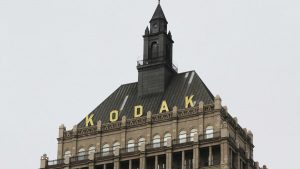Towards the cease of 2016, hackers stole the non-public records of extra than 57 million Uber drivers and passengers. It took around a year for Uber to suppose the breach, and two extra after that sooner than two men pleaded guilty to pulling it off. And the repercussions are peaceful echoing. On Thursday, the Department of Justice charged Uber’s dilapidated chief safety officer Joseph Sullivan with obstruction of justice and concealing a criminal for allegedly failing to picture the incident to Federal Commerce Commission investigators in 2016.
At space is no longer staunch Sullivan’s slowness to picture the breach. Uber already paid $148 million to resolve in 2018 with attorneys total across the US for violating relate records breach disclosure legal pointers, which generally require notification within 45 days. However the fresh indictment alleges that Sullivan participated in an interior Uber effort in 2016 to actively cloak up the breach by paying the hackers $100,000 by the firm’s malicious program bounty program to delete the stolen records and sign a nondisclosure settlement about the incident. In keeping with court paperwork, Sullivan did so whereas cooperating with the Federal Commerce Commission in an novel investigation about an unrelated 2014 Uber records breach and the firm’s records safety practices overall.
The conditions described in the case are each explicit and low; the particular identical stipulations would want to be relate for federal prosecutors to employ this system in various instances, making it no longer most likely to location a broadly acceptable precedent. However Sullivan’s indictment is the predominant relate instance in the US of a company government facing criminal costs and penitentiary time—as much as eight years on this case—over an records breach response. As such, it has the aptitude to herald a brand fresh era of accountability for company officers who botch these sensitive and high-stakes remediations.
“The criticism alleges that Uber had been hacked in September of 2014 and that the FTC was once gathering records about that 2014 hack. The FTC demanded responses to written questions and required Uber to designate an officer to produce testimony below oath,” US legal professional for the Northern District of California David Anderson Sullivan acknowledged in remarks about the indictment. “Sullivan helped to prepare Uber’s written responses and was once the designated officer who gave sworn testimony to the FTC. On November 14, 2016, approximately 10 days after providing this testimony to the FTC, Sullivan learned of the 2016 hack. Sullivan did no longer picture the 2016 hack as required. As an more than just a few Sullivan hid the 2016 hack from the public and the FTC… After the 2016 price, Sullivan reviewed and accredited statements to the FTC that failed to suppose the 2016 hack.”
Representatives for Sullivan instructed reporters on Thursday that Uber’s company insurance policies at the time “made particular that Uber’s apt department—and no longer Mr. Sullivan or his community—was once in price for deciding whether or no longer, and to whom, the matter wishes to be disclosed.”
“We proceed to cooperate entirely with the Department of Justice’s investigation,” acknowledged an Uber spokesperson in an announcement on Thursday. “Our decision in 2017 to suppose the incident was once no longer handiest the loyal ingredient to attain, it embodies the foundations whereby we’re working our industry these days: transparency, integrity, and accountability.”
In a November 2017 blog submit publicly disclosing the 2016 breach,
P&T, consultation, engagement, property development, planning permission, council permission, planning law, planning application, public consultation, public engagement



